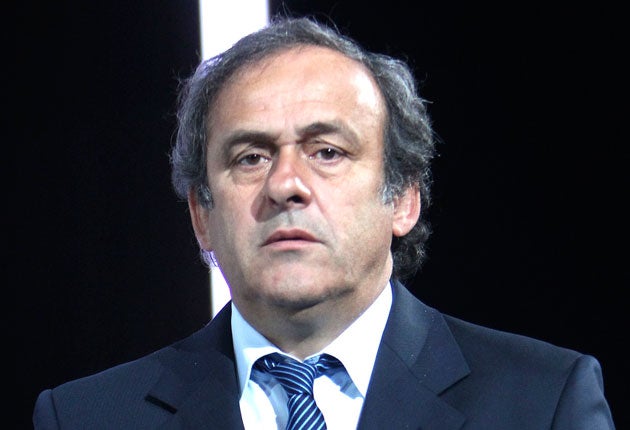FA focuses on Europe as it takes first step to repairing bad relations

Your support helps us to tell the story
From reproductive rights to climate change to Big Tech, The Independent is on the ground when the story is developing. Whether it's investigating the financials of Elon Musk's pro-Trump PAC or producing our latest documentary, 'The A Word', which shines a light on the American women fighting for reproductive rights, we know how important it is to parse out the facts from the messaging.
At such a critical moment in US history, we need reporters on the ground. Your donation allows us to keep sending journalists to speak to both sides of the story.
The Independent is trusted by Americans across the entire political spectrum. And unlike many other quality news outlets, we choose not to lock Americans out of our reporting and analysis with paywalls. We believe quality journalism should be available to everyone, paid for by those who can afford it.
Your support makes all the difference.The Football Association will focus on Europe as it seeks to rebuild its relationships with other governing bodies in the aftermath of its stand against Fifa's presidential election in Zurich this week.
The FA insists it does not regard itself as isolated in the wake of David Bernstein's principled and controversial call for the election to be postponed, but the events of Wednesday, following on from the fallout from last year's failed World Cup bid, have widened the divide. Sixteen other countries voted with England, but Scotland were the only ones to go public on their support.
"Coming out of the World Cup bid we knew we had problems because we only got one vote," said Alex Horne, chief executive of the FA. "We knew we had a long way to go at the start of the year. David and I have been working on European relations. Our European relationships are most important."
Bernstein addressed a hurriedly assembled meeting of Uefa delegates and the organisations's president, Michel Platini, who remains Sepp Blatter's likely successor in that post at Fifa, on Wednesday morning. The FA was advised not to speak out, but Horne does not believe its stance will cause significant long-term issues with Uefa.
Horne said: "We understood from that meeting that people would rather we desisted from what we were trying to achieve. We have spoken to the Uefa executive and David [Bernstein] has spoken to Michel Platini and those are relationships we can retain. That remains the focus, having good European relations over the next four years."
What the FA's relationship with Blatter, and the rest of Fifa, is like over the next four years remains to be seen. Blatter criticised the FA's action at his post-coronation press conference, saying they should have set "an example".
Horne said: "I think it's vital 'to have a relationship with Blatter'. What we heard in the final three proposals is a big change. Blatter went further than I've heard him go. I think he has been pressured into going as far as he has in creating this new solutions committee."
The solutions committee will look into any allegations of corruption, but will be set up internally by Fifa. Future world cups will now be chosen by the entire congress rather than the 24-strong executive committee.
There will also be a new code of conduct for members, but the likelihood of real change is still regarded by most Fifa watchers as slim.
Join our commenting forum
Join thought-provoking conversations, follow other Independent readers and see their replies
Comments